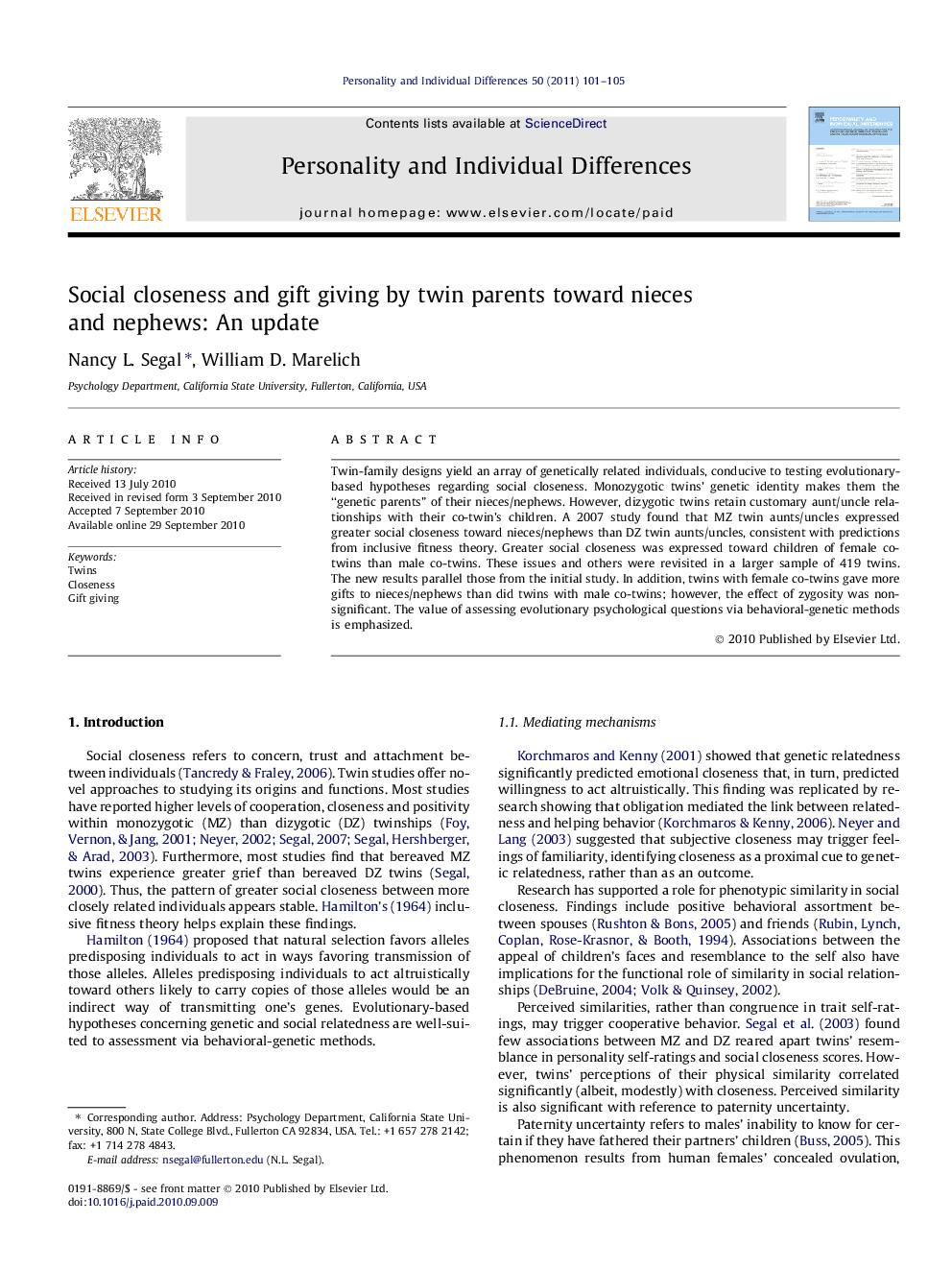| Article ID | Journal | Published Year | Pages | File Type |
|---|---|---|---|---|
| 891715 | Personality and Individual Differences | 2011 | 5 Pages |
Twin-family designs yield an array of genetically related individuals, conducive to testing evolutionary-based hypotheses regarding social closeness. Monozygotic twins’ genetic identity makes them the “genetic parents” of their nieces/nephews. However, dizygotic twins retain customary aunt/uncle relationships with their co-twin’s children. A 2007 study found that MZ twin aunts/uncles expressed greater social closeness toward nieces/nephews than DZ twin aunts/uncles, consistent with predictions from inclusive fitness theory. Greater social closeness was expressed toward children of female co-twins than male co-twins. These issues and others were revisited in a larger sample of 419 twins. The new results parallel those from the initial study. In addition, twins with female co-twins gave more gifts to nieces/nephews than did twins with male co-twins; however, the effect of zygosity was non-significant. The value of assessing evolutionary psychological questions via behavioral-genetic methods is emphasized.
